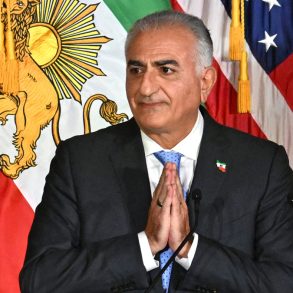President Donald Trump is taking strong action to confront what many see as a growing crisis of antisemitism at some of America’s most elite universities. Harvard University is now under federal investigation, and nearly $9 billion in government funding could be at risk unless the school shows real progress in protecting its Jewish students.
The Trump administration says Harvard has repeatedly failed to provide a safe and inclusive environment for Jewish students, even as it continues to receive billions in taxpayer dollars. The federal government’s review aims to hold Harvard accountable for what officials describe as years of negligence, bias, and a refusal to confront harmful ideologies on campus.
Harvard Under Federal Review
On March 31, the administration announced that it would begin reviewing $8.7 billion in multiyear federal grant commitments and another $255 million in active federal contracts awarded to Harvard and its affiliates, including major medical institutions like Mass General Brigham and Boston Children’s Hospital.
“Harvard’s failure to protect students on campus from antisemitic discrimination – all while promoting divisive ideologies over free inquiry – has put its reputation in serious jeopardy,” said Education Secretary Linda McMahon in a statement. “Harvard can right these wrongs and restore itself to a campus dedicated to academic excellence and truth-seeking, where all students feel safe on its campus.”
The federal review is part of a larger effort led by the Trump administration’s Joint Task Force to Combat Antisemitism, which is examining how several universities have handled antisemitic incidents in the wake of recent campus protests.
The Events That Sparked the Crackdown
Tensions escalated last fall when a coalition of Harvard student groups released a letter blaming Israel for the violence following the Hamas-led attack on October 7, 2024. The statement shocked many alumni, donors, and public figures who saw it as antisemitic and lacking any moral clarity. The administration at the time remained largely silent, fueling widespread frustration.
Former Harvard president Lawrence Summers, who is himself Jewish and once served as U.S. Treasury Secretary, criticized the school’s leadership. “Just because Donald Trump says something doesn’t make it wrong, and Harvard has been way too slow in responding to the antisemitism,” he said. While acknowledging that Harvard has taken steps in recent months, he added, “Harvard has made real errors.”
President Trump and his team argue that elite universities have become disconnected from basic values like fairness, safety, and accountability. The administration sees this effort as a necessary intervention to ensure that publicly funded institutions live up to their obligations.
What Harvard Stands to Lose
If the review results in a loss of federal funding, the consequences for Harvard could be severe. The school relies on government grants and contracts to support its vast research programs, many of which are tied to medical advancements and public health.
In a message to the Harvard community, President Alan Garber warned, “If this funding is stopped, it will halt life-saving research and imperil important scientific research and innovation.” He added, “We are not perfect,” and promised to work with federal agencies to show the steps Harvard is taking.
Garber, who is Jewish, also spoke personally about the issue. “I have experienced antisemitism directly, even while serving as president,” he wrote. “I know how damaging it can be to a student who has come to learn and make friends at a college or university.”
But for many, Harvard’s statements come too late. Critics say the university’s leadership only began to act after it became clear that public and government pressure would not let up.
Trump’s Broader Effort to Reform Higher Education
Harvard is one of ten universities under investigation by the Trump administration’s antisemitism task force. Others include Columbia University, New York University, and the University of Pennsylvania. The federal government recently canceled $400 million in grants to Columbia and forced the school to make significant policy changes before negotiations to restore that funding could begin.
The Trump administration has made it clear that it is prepared to use its leverage to demand reforms. Josh Gruenbaum, a senior official with the General Services Administration, said, “We will not hesitate to act if Harvard fails to do so.”
President Trump has long been critical of what he describes as a culture of radicalism and censorship at elite schools. During his campaign, he called many top institutions “overrun by Marxists, maniacs, and lunatics,” and promised to restore academic freedom and fairness. He has warned on social media that “All Federal Funding will STOP for any College, School, or University that allows illegal protests.”
This hardline approach has rattled university leaders, many of whom are unsure how to respond. Some schools have tried to quietly implement reforms, while others are calling for open resistance to federal demands.
Mixed Reactions on Campus
Within Harvard, opinions are deeply divided. Some faculty members have urged the administration to stand up to federal pressure, arguing that academic freedom is at stake. But others, including students and Jewish groups, support the Trump administration’s efforts and say strong intervention was needed.
Shabbos Kestenbaum, a Harvard graduate who is suing the school for failing to address antisemitism, said, “This is precisely why I campaigned and voted for President Trump.” He praised the federal review as long overdue and added, “If Harvard is not scared, it simply means they’re not paying attention, because more accountability is on the way.”
The Harvard Jewish Alumni Alliance issued a statement supporting the review. Spokesperson Roni Brunn said the government’s actions would help ensure “antisemitism isn’t created at Harvard, isn’t platformed at Harvard, isn’t elevated at Harvard.”
However, some students worry that the political nature of the investigation could make life harder for everyone. Senior Lauren Perl, whose grandparents were Holocaust survivors, said she believes the administration’s methods may backfire. “It’s going to put Jewish students in a hard place where we are going to have to essentially answer for the things that are being done in our name.”
The Future of Federal Funding and Free Speech
Beyond Harvard, the Trump administration’s campaign is reshaping the relationship between the federal government and higher education. By tying funding to campus conduct, the administration is sending a clear message that it expects accountability, especially when public money is involved.
Some education leaders warn that this approach may damage academic research. Ted Mitchell, president of the American Council on Education, said the government was engaging in “pre-emptive hostage-taking tied to funding.” He argued that unproven claims of antisemitism were being used to punish schools without due process.
Still, Trump’s supporters see the effort as long overdue. They argue that for too long, elite institutions have operated without accountability and have allowed political ideologies to shape their policies at the expense of student safety and academic freedom.
Harvard’s leadership now faces a difficult decision. Will it resist federal pressure and risk losing billions in funding, or will it cooperate and take meaningful steps to restore trust and accountability?
In his message to the campus, President Garber said, “We fully embrace the important goal of combatting antisemitism, one of the most insidious forms of bigotry.” But whether those words will be enough to satisfy federal authorities remains to be seen.
NP Editor: Ultra-liberal Universities believe they operated in a vacuum and that they can operate under ‘woke’ conditions without interference. These arrogant assholes are now learning that this is not the case.








